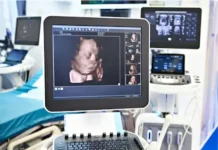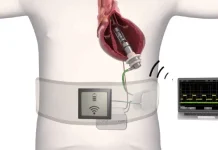Oxford-based start-up gaitQ and Swiss medical device company machineMD have been awarded a $1m grant from InnovateUK and Innosuisse to kickstart a study on movement in Parkinson’s disease patients.
The research grant will support an 18-month research project that will record movement data from 100 UK and Swiss Parkinson’s disease patients as they go about their daily lives, identifying digital biomarkers.
Read more: Annoviant wins $2.9m NIH grant for paediatric heart conduits
Collected and analysed at the University of Exeter (UoE) and the University Hospital Zurich (USZ), the data will be used to establish patterns of behaviour, shaping more effective treatment plans, and enabling early detection and treatment of the condition.
Parkinson’s disease is a chronic and progressive neurological condition that causes symptoms such as shaking, stiffness, and slow movement. According to a report on GlobalData’s Pharma Intelligence Center, there were 2,434,438 diagnosed prevalent cases of Parkinson’s in the seven major markets (7MM: US, UK, France, Germany, Italy, Spain, and Japan) in 2019. This is expected to grow to 2,999,337 cases at an annual growth rate of 2.32% by 2029.
The research aims to help Parkinson’s disease patients manage their condition more independently and effectively, by identifying key moments when the illness progresses and aiming to understand more about what causes this and why, according to gaitQ’s CEO Tristan Collins.
machineMD neuroscientist Ana Coito comments: “People with Parkinson’s may remain asymptomatic from motor symptoms until 50%-60% of the dopaminergic neurons have been lost and treatment is only initiated in the late disease phase. Early and accurate diagnosis, as well as accurate disease progression monitoring, are still important challenges.”
In November 2023, gaitQ teamed up with the University of Exeter in a £1.4m ($1.75m) deal to create a wearable device that can aid in walking for individuals facing Parkinson’s and other gait-related challenges.
In February 2024, Koneksa enrolled the first patient into the LEARNS observational study, aimed at evaluating the reliability and responsiveness of digital biomarkers in neurodegenerative disorders such as Parkinson’s. The study focuses on using mobile and wearable-based assessments to enhance signal detection for potential disease-modifying therapies.






